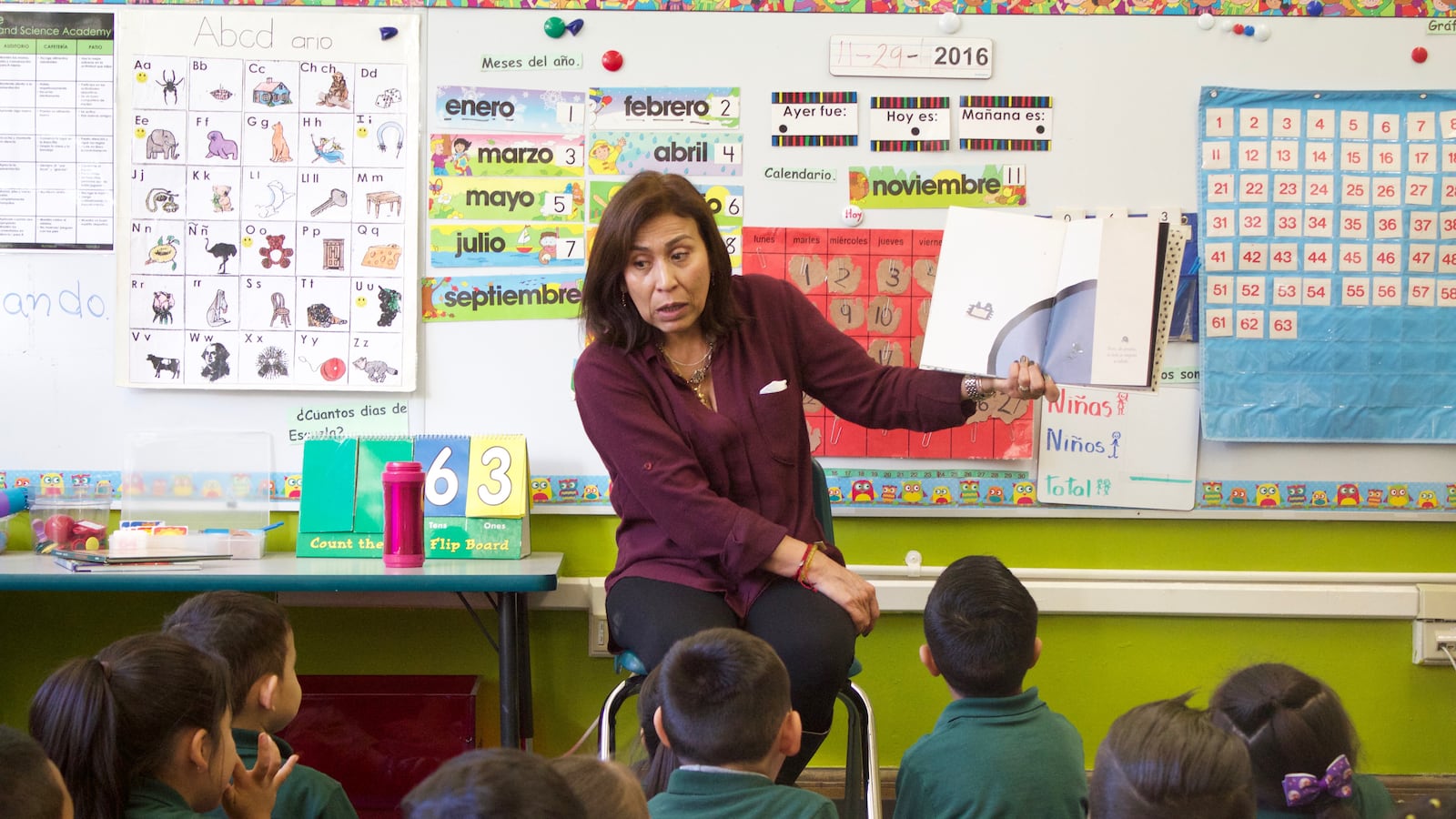As part of a broad plan to increase the volume of high-quality teachers in Colorado, state officials are considering asking lawmakers to take the bold step of establishing a minimum teacher salary requirement tied to the cost of living.
Officials from the state departments of education and higher education are finalizing a list of recommendations to address challenges to Colorado’s teacher workforce. Pressing for the legislation on teacher salaries is one of dozens of recommendations included in a draft report.
The report, assembled at the request of the legislature, also proposes a marketing campaign and scholarships to attract new teachers to rural areas.
Representatives from the Colorado Department of Education said they would not discuss the recommendations until they’re final. However, the department earlier this month briefed the State Board of Education on their proposed recommendations in advance of the Dec. 1 deadline for it to be finalized.
The impending report — based on thousands of responses from educators, students and other Colorado residents in online surveys and town halls across the state — is a sort of first step for the state legislature to tackle a problem years in the making. Since 2010, Colorado has seen a 24 percent drop in the number of college students graduating from the state’s traditional teacher colleges. There’s also been a 23 percent drop in enrollment in those programs.
Residency programs, which place graduate students in a classroom for a full year with an experienced teacher, and other alternative licensure programs have seen a 40 percent increase in enrollment. But those programs produce far fewer teachers and can’t keep up with demand.
Colorado faces a shortage of teachers in certain subjects, regions and schools, and circumstances vary. Math and science teachers are in short supply: Only 192 college students in 2016 graduated with credentials to teach those subjects. The same year, 751 students left with a degree to teach elementary school.
And rural schools have had an especially hard time finding and keeping teachers.
Here’s a look at what the state departments are considering recommending, based on the presentation from education department officials to the state board:
Provide more and better training to new — and veteran — teachers.
Colorado schools are already required to offer some sort of induction program for new teachers. This training, which lasts between two and three years, is supposed to supplement what they learned during college.
For the last two years, the state education department has been pushing school districts to update their programs. The recommendations in the report could kick things up a notch.
The education departments are asking for updated induction requirements to be written into statute and more money to be provided to districts to pay for the training.
The draft report also calls for more more sustained training for veteran teachers, including competitive grant programs.
An additional suggestion is to create a program to train teachers expressly to teach in rural classrooms.
Increase teacher compensation and benefits.
This will be a hard pill to swallow. According to the presentation to the state board, the education departments want to call on lawmakers to set a minimum salary for teachers based on the school district’s cost of living.
The presentation to the board lacked specifics on how lawmakers and school districts could accomplish this. One board member, Colorado Springs Republican Steve Durham, called it a “mistake” to include such a recommendation.
Keeping up with the rising cost of living is a challenge. A new report shows new teachers in the state’s three largest school districts couldn’t afford to rent a one-bedroom apartment.
“We hope the report itself is going to talk a lot the cost of living — that’s what we heard from our stakeholders across the field,” Colleen O’Neil, the education department’s executive director of educator talent told the state board. “They literally were not able to meet the cost of living because their salaries did not compensate them fairly enough to find housing.”
Other suggestions the report might highlight to improve teacher compensation include loan forgiveness, housing incentives and creating a differentiated pay scale for teachers — something teachers unions staunchly oppose.
Help schools better plan for hiring and send teachers where they’re needed.
One short-term solution the state is considering recommending is allocating more resources to help schools plan for teacher turnover. This includes providing incentives for teachers to notify school leaders about their plans to leave the classroom earlier.
The education departments are also suggesting the state increase the number of programs that can help teachers get licensed in more than one subject at a time. Other ideas include offering scholarships to potential teachers to complete licensing requirements for content areas that are lacking viable candidates — likely math and science — and providing transportation and technology stipends for rural teachers.
Make the teaching profession more attractive.
Teachers “feel they’re not treated like professionals,” O’Neil told the board. So the education departments want the legislature to allow them to partner with private entities to launch a marketing campaign to lift the profile of teaching as a career in the state.
The education departments also hope the legislature considers creating more opportunities for middle and high school students to consider teaching as a viable career path. This could include reinvigorating the state’s Educators Rising program, a program for high school students interested in teaching.

